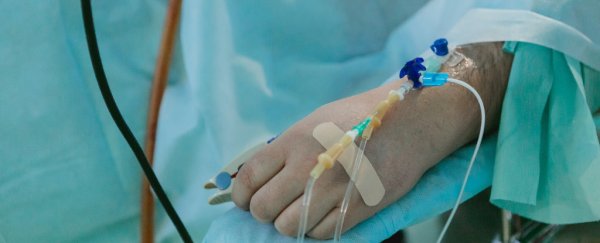We just got even more evidence that the antimalarial medications touted by President Donald Trump aren't a good bet for treating the coronavirus.
A massive new study found that the treatments didn't appear to help patients hospitalized with the novel coronavirus and instead were associated with heart complications and an increased risk of death.
The analysis looked at the hospital outcomes of 96,032 hospitalized patients, 14,888 of whom got some form of the antimalarial treatments chloroquine and hydroxychloroquine over the course of four months.
The patients came from 671 hospitals from six continents, and the study was led by researchers at the Brigham and Women's Hospital in Boston. It was published Friday in the journal Lancet.
Though it was not a randomised controlled trial, it's the largest study of its kind in patients with COVID-19, the disease caused by the novel coronavirus.
It examined the outcomes of patients who were treated with hydroxychloroquine, hydroxychloroquine and a macrolide antibiotic, chloroquine, or chloroquine and a macrolide antibiotic. Macrolides are a type of antibiotic that includes azithromycin.
Ultimately the authors couldn't find a benefit in those who were given the treatments compared with those who didn't receive any of the combinations. Instead, the study found an increased frequency in abnormal heartbeats in those who received the medications.
Those who received the medications had a higher risk of death compared with those who did not take the medications.
To be sure, there are limits to the analysis. It was observational in nature, though randomised controlled trials – which preemptively assign patients either to the medication or a placebo control at random – are underway.
Early in the pandemic, the drug caught the eyes of doctors, experts, and the Trump administration as a potential coronavirus treatment.
Some early, promising results regarding the drug were published in late March.
President Donald Trump on Monday said he had been taking hydroxychloroquine every day for a week and a half.
Additional studies, however, have cast doubt on how effective the drug might be in treating the novel coronavirus. A clinical trial taking place in Brazil was halted in April after a spike in deaths among patients who had received the drug.
The drug has not been approved by the US Food and Drug Administration for the treatment of COVID-19.
Two observational studies, published in the New England Journal of Medicine and the Journal of the American Medical Association, found that among thousands of hospitalized coronavirus patients, those who received the antimalarial medication hydroxychloroquine didn't fare better or worse than patients who didn't receive the drug.
This article was originally published by Business Insider.
More from Business Insider:
